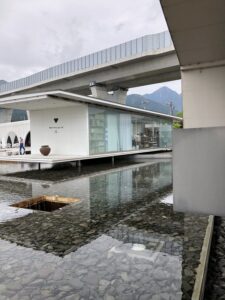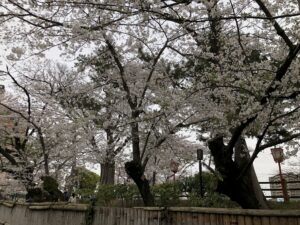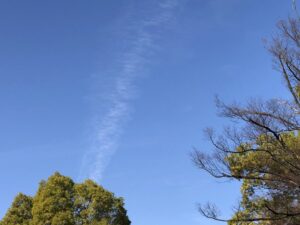I happened to see a video (or was it a documentary program?) on YouTube about the ascetic practices at Eiheiji Temple. I just happened to see a video of the training at Eiheiji Temple on YouTube (originally some kind of documentary program?). Eiheiji is the head temple of the Soto sect of Buddhism and a training center for unsui (apprentice monks).
My family’s religious affiliation is with the Soto sect, so I have been familiar with Eiheiji since I was a child. When I visited Eiheiji once as a tourist, my mother said to me, “How about becoming a monk in the future? I still clearly remember my mother telling me, “How about becoming a monk in the future? Perhaps I was like a monk from when I was a child.
This video begins with Unsui and others who wish to practice asceticism standing in front of the Eiheiji temple gate and asking to be admitted to the temple. The video then shows the yearly training of Unsui along with the events of spring, summer, fall, and winter.
As you can see in this video, after waiting for several hours in the extreme cold and snow, the Unsui finally appear and are asked about their commitment to training. Of course, Unsui answered loudly, “Of course.
Just by watching that scene, I thought to myself, if it were me, I would have broken down. I probably would have gone home.
As you can imagine, the ascetic practices at Eiheiji are quite severe, even for those who are not familiar with the temple. Starting from washing one’s face when one wakes up in the morning, there are detailed rules on how to eat, how to perform various types of work, how to sit in meditation, and how to recite sutras.
Washing one’s face is done with the smallest amount of water possible, and even the way one places one’s chopsticks at mealtimes is prescribed.
These rules were not developed through the long tradition of Eiheiji, but were practiced by Zen master Dogen, the founder of the temple. All these rules and regulations were training to attain enlightenment. Life is practice as it is. This is something that perhaps those who have some knowledge of Zen understand more or less.
However, the part at the end of the video where one of the Unsui, who was descending the mountain after completing his ascetic practice, was asked how he felt and said, “I have learned to endure,” caught my attention.
When I heard this, I thought to myself, “This Unsui has not finished his training yet. (I am sorry for sounding arrogant even though I have not yet completed my training.)
The detailed rules, manners, and events of Eiheiji are imposed on Unsui because they have their own meaning. Whether it is rounding one’s head or sitting in zazen, one is physically and mentally making one’s self infinitely less present. Then, through direct experience (enlightenment), we become emptiness itself. In the end, the word “emptiness” is no longer necessary.
In other words, when our being becomes the Buddha nature (or world spirit in the West) itself, we naturally become one with the Buddha, and our thoughts and actions will inevitably be similar to his. I believe that is the teaching of Buddhism (sorry if I am wrong).
In the first place, I think that when you are able to perform these practices without enduring, without enduring, without even directing your attention to anything, and when it is no longer even a practice for you, then the practice has been completed for the first time.
When he used the word “endure,” I felt that he had not yet reached that point.
If we lose our self and surrender our existence to the oneness of all things, we will realize that all phenomena and phenomena (not only living things) are a part of the world spirit, even if we do not realize it. In order to live one’s own life, one should do one’s best not to cause trouble to other beings. If you do, it will be to the detriment of something, so keep it to a minimum.
I am sure that Zen Master Dogen lived a natural life without overworking himself at all, and as a result, he was able to live with only a bucketful of water.
When Unsui reached that state of being, he did not feel that he had “learned to endure” his Eiheiji asceticism, but rather that he had “learned to live with it.
I think it was, “Even if I lived in the middle of downtown Tokyo, I would still be doing the Eiheiji lifestyle.
However, the question is, after attaining “enlightenment” or, as Kitaro Nishida put it, “absolute experience,” how do we apply it to the world, and how do we continue to attain enlightenment beyond that enlightenment?
As I ponder these things, I wonder how Unsui, who has learned to endure, is doing now.
See you soon!
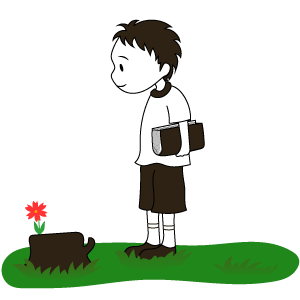



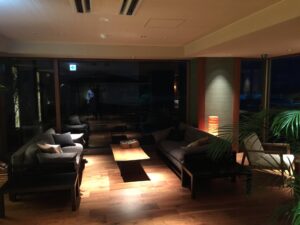
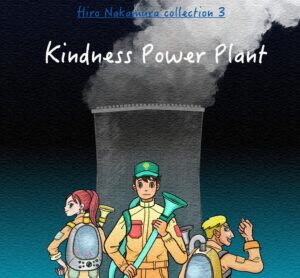
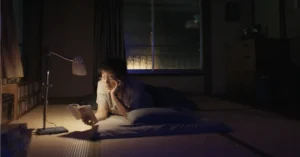


-192x300.png)
